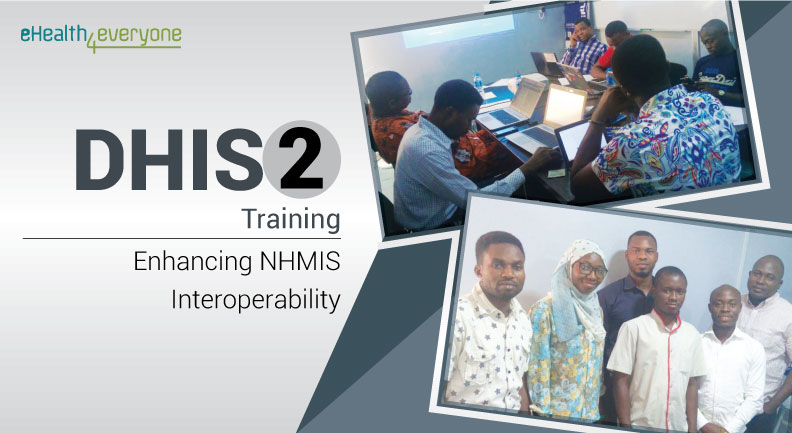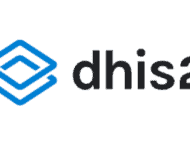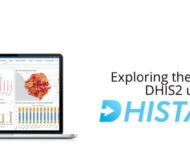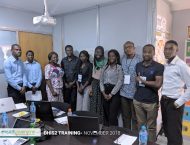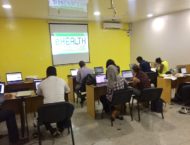As more countries adopt national-level data-warehouses based on the DHIS2, the need for ensuring robust architectures integrating multiple health information systems has been emphasized. Countries can only achieve national-level data integration by ensuring interoperability between the plethora of ehealth and mhealth software being developed.
In Nigeria, as an example, the Federal Ministry of Health (FMoH) uses DHIS2 as its National Health Management Information System (NHMIS), and mandates that all health facilities report aggregate health data using DHIS2 monthly; of which largely only public health facilities currently comply. Numerous private health facilities do not report this data, and as a result, data analyzed from NHMIS is incomplete and cannot accurately reflect the true health status of Nigerians to allow for more informed decision making.
Health facilities have begun to adopt IT-based Information Management system viz Electronic Medical Records (EMR) to manage patient data and overcome the challenges of using paper based systems. However, only few EMRs are interoperable with DHIS2. DHIS2 allows the import of aggregate patient level data from these EMRs, and can allow patient data collected from private health facilities to be reported monthly into DHIS2 as per FMoH mandate.

An image showing DHIS2 as an open structure that can share data from various information systems
APMIS recognized the poor reporting rates of health data by private health facilities and the lack of interoperability between most EMRs and DHIS2 and came up with a viable solution. They developed an EMR solution called All Purpose Management Information System (APMIS) that can aggregate patient level data from facilities and import this data into the NHMIS. However, they faced a major challenge; they did not fully understand DHIS2 and its interoperability features. They recognized eHealth4everyone’s expertise and vast experience in DHIS2 and so contacted us.
That’s when we stepped in.
As a result, on 27th November 2017, we started a 3-day DHIS2 interoperability training with APMIS. We trained them on the interoperability features of DHIS2, including data and metadata import and export. We also trained them on DHIS2 data entry, analysis and customization because we recognized their need to fully understand the entire system. We went the extra mile to make them understand the Nigeria NHMIS, its datasets and its monthly reporting form, as we knew it was knowledge needed to carry out their project effectively.

An image showing the components of the DHIS2 interoperability training
At the end of the training, they understood exactly what they needed to do to fully integrate patient level data using APMIS with NHMIS. It’s no wonder when we asked the participants to rate the level at which the training met their expectations, they gave an average rating of 4.8 out of 5.

Our participants during one of the practical sessions
To assess the effect of our training on knowledge of DHIS2, we carried out a pre and post knowledge-based training assessment. Prior to the training, they had a mean score of 17%, with a minimum and maximum score of 0% and 39% respectively. However, after our intensive, practical-filled training, they had a mean score of 83%. The results show that our trainings can turn any DHIS2 novice to experts.

A chart showing the pre and post training DHIS2 knowledge scores
When asked what feature was most liked about the training, participants mentioned the hands-on practical sessions and the interactive nature of the training. Our trainings include practical sessions after every module and are highly interactive so as to ensure internalization of knowledge gained. They also loved our hospitality. We know that learning is optimum when comfort is optimum, hence we make sure all our participants have the utmost comfort.

Our participants and trainers looking pleased with the outcome of the training
The participants were excited to apply the training we provided to integrate EMRs into the NHMIS and help improve reporting rates among private health facilities. We are excited as well, because we know our trainings matter. Our DHIS2 training is enhancing HIS interoperability; a key factor in improving Nigeria’s health data quality. We will continue to provide the right kind of training to support how DHIS2 can provide solutions to improve Nigeria’s healthcare system. That way, we will continue to contribute in making Nigeria healthier.
We are DHIS2 experts and we can provide the DHIS2 training you need. Want to register for our upcoming DHIS2 training or need DHIS2 Interoperability training? Indicate your training needs/interest here

